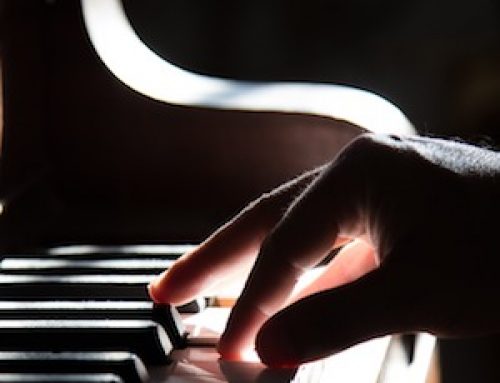1. Be Prepared.
Being prepared not only means getting good practice time in (at least five 30-minute practices a week), but it’s how well you use your practice time. In fact, it is much better to spend less time and put your whole mind, body and soul into it than to spend an hour just “playing around” with your pieces.
Being prepared also means that you have read your lesson plan every time you practice, not just the first time. Read what you should be careful of and what you should concentrate on. This is what it means to practice carefully.
And, of course, have all your books, binder, flash cards, star book, etc. in your piano bag and with you at the lesson.
2. Be True to Yourself.
When at the lesson or in practice, be true to yourself. This means be honest with yourself whether you are really ready to move on to that next section of the piece, or does that left hand need some more work before you put it together? A good way to tell if you are ready to move on is to play whatever you are working on 3 times in a row without a pause or mistake. Then you are ready to either increase your tempo or move ahead.
3. Be true and honest with your teacher at your lessons.
Your teacher can help you more when you tell the truth about how much practice you got in a week. It tells your teacher where you need more help so that harder parts of pieces become easier for you. Remember it is your teacher’s job to help you make playing easier! That includes fingering and counting!
4. Be true to your practice schedule.
You should carefully chose your practice times and days during the week. If that Friday night practice scheduled just isn’t working out, change it! Don’t expect yourself to practice when you know you are going to be exhausted. But when you have chosen a good schedule, stick to it! Great baseball and football players, professional dancers and ice skaters, as well as bands and orchestras all have practice schedules. So should you if you want to progress.
5. Be Open.
Be open to new ideas and music as you come to the lessons. Try new styles of music that maybe you haven’t heard of too often. Listen carefully to why your teacher wants you to do something a certain way. If they forget to tell you why, ask them! You’ll remember a lot better and be a better player for it.
6. Be Focused.
Stay focused at your lesson and at home when playing. Just letting your feelings take over often is inviting a mistake. Certainly you must put emotion in your music, but never stop your mind from working and concentrating on what you are doing. Don’t let your mind wander.
7. Be Relaxed.
Relax your hands, shoulders, arms, legs, feet, mind, and everything in between. Keep your fingers curved, back straight, and make sure you are sitting a good distance from your piano or keyboard. Remember forte is a quick solid motion, not a karate chop. Your mind (and practice area) should be free of distractions (including other people and the TV).
8. Be Yourself.
Feel free to try new ways of playing and creating your own music on the piano. Ask questions. Listen more than you talk. Listen to yourself play.
9. Have Fun!
Copyright 1999-2012 by Paul Nazzaro

